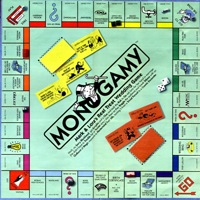Difference between revisions of "Monogamy"
m (Text replacement - "http://" to "https://") |
|||
| Line 4: | Line 4: | ||
French monogamie, from Late [[Latin]] monogamia, from [[Greek]], from monogamos monogamous, from mon- + gamos [[marriage]], from gamein to marry | French monogamie, from Late [[Latin]] monogamia, from [[Greek]], from monogamos monogamous, from mon- + gamos [[marriage]], from gamein to marry | ||
The [[word]] ''monogamy'' comes from the [[Greek]] words "μονός", monos which means one or alone, and "γάμος", gamos which means [[marriage]] | The [[word]] ''monogamy'' comes from the [[Greek]] words "μονός", monos which means one or alone, and "γάμος", gamos which means [[marriage]] | ||
| − | *Date: [ | + | *Date: [https://www.wikipedia.org/wiki/17th_Century 1612] |
==Definitions== | ==Definitions== | ||
*1 archaic : the [[practice]] of marrying only once during a lifetime | *1 archaic : the [[practice]] of marrying only once during a lifetime | ||
| Line 12: | Line 12: | ||
'''Monogamy''' usually refers to a [[form]] of [[marriage]] in which an [[individual]] has only one [[spouse]] at any one time. However, monogamy may also refer to the more general [[state]] of having only one [[mate]] at any one time and as such may be applied to the [[social]] [[behavior]] of all animals. In current usage monogamy often refers to having one [[sexual]] [[partner]] irrespective of [[marriage]] or [[reproduction]]. | '''Monogamy''' usually refers to a [[form]] of [[marriage]] in which an [[individual]] has only one [[spouse]] at any one time. However, monogamy may also refer to the more general [[state]] of having only one [[mate]] at any one time and as such may be applied to the [[social]] [[behavior]] of all animals. In current usage monogamy often refers to having one [[sexual]] [[partner]] irrespective of [[marriage]] or [[reproduction]]. | ||
| − | Some [[cultures]] value monogamy as an [[ideal]] form of [[family]] [[organization]]. However, many [[cultures]] prefer other forms of [[family]] [[organization]]. [[Anthropological]] [[data]] suggests many [[societies]] prefer polygamous marriage as a cultural ideal. There are multiple forms of nonmonogamy that are used to organize families, as well multiple forms of monogamy such as marriage, cohabitation and extended families.[ | + | Some [[cultures]] value monogamy as an [[ideal]] form of [[family]] [[organization]]. However, many [[cultures]] prefer other forms of [[family]] [[organization]]. [[Anthropological]] [[data]] suggests many [[societies]] prefer polygamous marriage as a cultural ideal. There are multiple forms of nonmonogamy that are used to organize families, as well multiple forms of monogamy such as marriage, cohabitation and extended families.[https://en.wikipedia.org/wiki/Monogamy] |
==See also== | ==See also== | ||
*'''''[[Paper 82 - The Evolution of Marriage|The Evolution of Marriage]]''''' | *'''''[[Paper 82 - The Evolution of Marriage|The Evolution of Marriage]]''''' | ||
Latest revision as of 01:23, 13 December 2020
Etymology
French monogamie, from Late Latin monogamia, from Greek, from monogamos monogamous, from mon- + gamos marriage, from gamein to marry The word monogamy comes from the Greek words "μονός", monos which means one or alone, and "γάμος", gamos which means marriage
- Date: 1612
Definitions
- 1 archaic : the practice of marrying only once during a lifetime
- 2 : the state or custom of being married to one person at a time
- 3 : the condition or practice of having a single mate during a period of time
Description
Monogamy usually refers to a form of marriage in which an individual has only one spouse at any one time. However, monogamy may also refer to the more general state of having only one mate at any one time and as such may be applied to the social behavior of all animals. In current usage monogamy often refers to having one sexual partner irrespective of marriage or reproduction.
Some cultures value monogamy as an ideal form of family organization. However, many cultures prefer other forms of family organization. Anthropological data suggests many societies prefer polygamous marriage as a cultural ideal. There are multiple forms of nonmonogamy that are used to organize families, as well multiple forms of monogamy such as marriage, cohabitation and extended families.[1]
